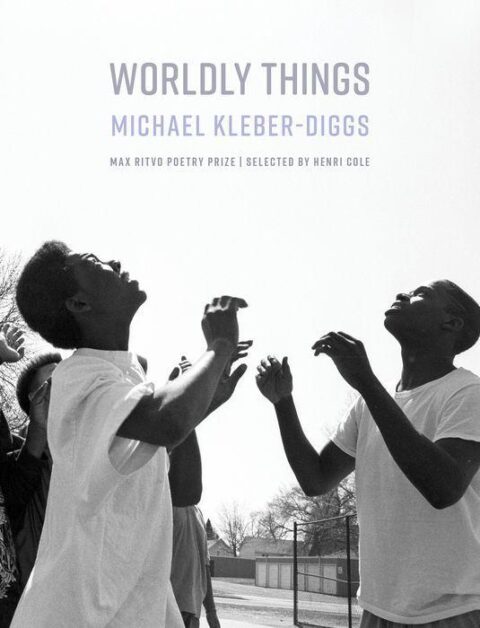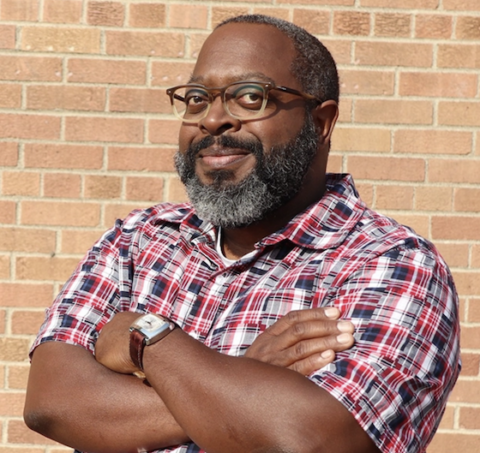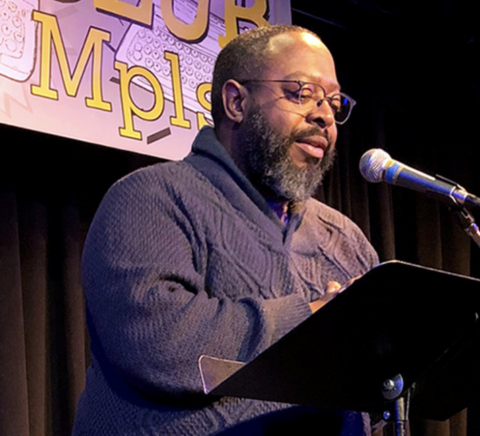In 1933, upon Hitler’s wresting of power, Bertolt Brecht left Germany for Scandinavia. He remained in exile there until obtaining his American visa in the spring of 1941. In 1935, while living in Denmark, Brecht wrote his remarkable essay “Writing the Truth: Five Difficulties.” In the first section, he asserts, “In the struggle with falsehood, we must write the truth, and thus truth must not be a lofty and ambiguous generality … When all the talk is of perfect and imperfect races, it takes courage to ask whether it is not hunger and ignorance and war that produce our deformities” and damage our lives.
Railing against the bland moralisms of German liberals who “insist upon a generalized justice for which they have never done anything,” Brecht then stiffens our spines by qualifying what it takes to make art effectively in protest:
 “And it also takes courage to tell the truth about oneself, about one’s own defeat. Many of the persecuted lose their capacity for seeing their own mistakes. It seems to them that the persecution itself is the greatest injustice. The persecutors are wicked simply because they persecute; the persecuted suffer because of their goodness. But this goodness has been beaten, defeated, suppressed; it was therefore a weak goodness, a bad, indefensible, unreliable goodness. For it will not do to grant that goodness must be weak as rain must be wet. It takes courage to say that the good were defeated not because they were good, but because they were weak” [Brecht’s italics].
“And it also takes courage to tell the truth about oneself, about one’s own defeat. Many of the persecuted lose their capacity for seeing their own mistakes. It seems to them that the persecution itself is the greatest injustice. The persecutors are wicked simply because they persecute; the persecuted suffer because of their goodness. But this goodness has been beaten, defeated, suppressed; it was therefore a weak goodness, a bad, indefensible, unreliable goodness. For it will not do to grant that goodness must be weak as rain must be wet. It takes courage to say that the good were defeated not because they were good, but because they were weak” [Brecht’s italics].
It then follows that art which proclaims and reflects one’s goodness, demanding our approval in advance, is self-crediting – but art that tells “the truth about oneself” is probing, creates complex relationships with its audience, and convincingly portrays “evil conditions … so that its avertible causes can be identified.” The artist notices, documents, and imagines.
The Brecht essay was the last thing I read before encountering Michael Kleber-Diggs’ Worldly Things. If you read the work from beginning to end, the last poem you will encounter is “Every Mourning”:
Every Mourning
Morning: walking my neighborhood, I come upon a colony
of ants busy at work. I take care not to step on any and miss
them all, then encounter up a ways a fellow traveler greeting
the day. I am frightening her. No. She is afraid of me.
Is she an introvert? Is she a neighbor? Is she just in from the ’burbs,
from the country? Is she scared of the inner city? Am I the inner city?
Is she racist? Shouldn’t I be the wary one? Or is she a survivor
like me? It can’t be what I’m wearing: khakis, a blue and white
checkered button-down shirt, and the nylon sandals I favor
because they’re comfortable, my feet can breathe in them.
Dear friends, I am the nicest man on earth.
And I want to shout, Morning! But just then a weaver or
carpenter, just then a pharaoh or fire or pavement, just
then a little black ant struggles by alone, alone. And
in that moment, I want us to give ourselves over
to industry, carry the weight of the day together, lighten
it. I want to be a part of a colony where I feel easy
walking around. Cool as the goddamn breeze. Where
I can breathe, build structures sturdier and grander
than this — but the woman crosses to the other side
of the street, and I do what I usually do: retreat into
myself as far as I can, then send out whatever’s left.
In one of his essays, Kleber-Diggs says, “Being Black in an anti-Black country is like being handed a stone at birth, a thing you have to carry and can never throw.” Holding that stone incessantly is self-damaging and brain-addling, and the italicized questions in “Every Mourning” represent the burden of his own uncertainties, the oppressiveness of always being on alert. My favorite poems in Worldly Things are situational, layered, and seem to continue (in the scene, in myself) after the final word. Most of us would remark that we may retreat into ourselves and return to interact – but for this poet, the pivot from a guarded interior to the troubled world is an embedded, anxious, recurrent, public gesture that seeks to understand itself. “Whatever’s left,” he tells us, comprises his poems. “Whatever’s left” suggests a diminished, precious resource, reduced to essential elements. It points back to Brecht’s brand of “weakness.” Being the “nicest man on earth” (i.e., his goodness) may be a fine sentiment, but goodness is not what drives this intriguing poem.
 Worldly Things begins with a “Black boy in the backseat of a cop-car.” Although the dangers facing the child in a patrolled world are foregrounded, Kleber-Diggs complicates the situation by introducing his own child who says to her dad, “Oh, Felix? / He’s pretty cool. Sometimes he can be mean. I think / he’s on probation.” The disparity between the adult’s assessment (“He’s in the wrong / system too soon – tragedies intertwining”) and the daughter’s terse summation (“That’s all she has to say”) results in a narrative that lets the reader hover between those responses and feel the space, narrow as it is, between daunting challenges facing the boy and the seemingly safe and reasoned conclusion of the daughter. It gives the reader something to experience as tension and to wonder about, beyond mere agreement with a point of view.
Worldly Things begins with a “Black boy in the backseat of a cop-car.” Although the dangers facing the child in a patrolled world are foregrounded, Kleber-Diggs complicates the situation by introducing his own child who says to her dad, “Oh, Felix? / He’s pretty cool. Sometimes he can be mean. I think / he’s on probation.” The disparity between the adult’s assessment (“He’s in the wrong / system too soon – tragedies intertwining”) and the daughter’s terse summation (“That’s all she has to say”) results in a narrative that lets the reader hover between those responses and feel the space, narrow as it is, between daunting challenges facing the boy and the seemingly safe and reasoned conclusion of the daughter. It gives the reader something to experience as tension and to wonder about, beyond mere agreement with a point of view.
Kleber-Diggs portrays himself as alternately participating in and resisting the conditions of his time. In “Source of My Confidence,” a neighbor frets over the approach of violent weather and neglects her garden, while he “minister[s] / to her flowers.” Here Kleber-Diggs isn’t putting his benevolence on show – he is underscoring the benefits of modest, sustaining gestures, like the poem itself, performed in the dark night. He is careful to qualify his care; in “I Love My Neighbors As I Love Myself,” he notes “I learned of love in harsh commands, curt / rebukes and tired ravenous hands,” and such is the love he dishes out to his neighbors. He follows up with poems that recall the death and resonating absence of his father. In “Superman and My brother, Spiderman and Me”: “our father was shot / and killed in his office. He was a dentist. I tell you that // for a reason. I use educated and middle-class for a reason. / I don’t want you to think our Dad had it coming.” The poem ends with unmissable pathos as the brothers “tried to hew hope from a mountain of despair.” This flat idiomatic language isn’t typical of his work.
Kleber-Diggs offers a complete vision of an adult human’s life in which paying attention is salvific. In “A Simple Question,” he meets with a therapist who is “not going to say anything until I do.” So he asks “Why do I never wake up laughing?” [italics his], a rhetorical question. In the end, “I notice fingerprints on her lenses. She will never see me.” In Brecht’s essay, the fifth difficulty in writing the truth is a lack of “the cunning to spread the truth among the many.” We the readers believe we can “see” Kleber-Diggs while the therapist cannot because we can see what he notices – the fingerprints. There’s a cunning and selectivity in his self-exposure; his behaviors are illuminated by the patterns of his poems and his choice of materials. The patterning is dynamic in his fine poem “Seismic Activities,” which spirals down the page, swinging between images of father and son, and then the poet and his child. Again, Kleber-Diggs depends on our willingness and ability to merge these scenarios – “I loved my father but he frightened me” and then “not much later I’d set my girl down mean, my rage” [italics his]. He exhorts himself to be a supportive, empathic father – and asks for a country of such parents in “Coniferous Fathers” – “fathers who love us like their fathers / couldn’t.”
 But he sees the children continue to languish and die. In “Confluence,” his child is lost through miscarriage. In “Lost in the Crowd,” there is “a mother who has just lost her child. / Here she is now. Her boy stopped, face down // in the middle of Canfield Drive.” A man dies in “Back in Huntington,” shot by police, then is embraced by his wife. Here in the middle of Worldly Things, suddenly there is less nuance and more muted (and not so muted) outrage. It seems and sounds inevitable – and calls for response, which Kleber-Diggs delivers in a devotional poem, “What Name For This?” – “I walk forward to say this – this is what / I have to offer: one part of my small story. // Or, this is what I’ve witnessed: I want you to notice it, too.”
But he sees the children continue to languish and die. In “Confluence,” his child is lost through miscarriage. In “Lost in the Crowd,” there is “a mother who has just lost her child. / Here she is now. Her boy stopped, face down // in the middle of Canfield Drive.” A man dies in “Back in Huntington,” shot by police, then is embraced by his wife. Here in the middle of Worldly Things, suddenly there is less nuance and more muted (and not so muted) outrage. It seems and sounds inevitable – and calls for response, which Kleber-Diggs delivers in a devotional poem, “What Name For This?” – “I walk forward to say this – this is what / I have to offer: one part of my small story. // Or, this is what I’ve witnessed: I want you to notice it, too.”
The second section ends with one of his best poems, “Fixtures,” and then one of his more declarative pieces, “America Is Loving Me To Death.” I imagine Brecht would have approved of the poem’s calling out of America’s mendacities, a poem written for The Cause, even as someone like me sits here quibbling about op-ed versus aesthetics. But I’m fixated by “Fixtures,” a travelogue of mini-marts and bodegas that includes ungratifying interactions between people — and much concern for our humanity. Here again, Kleber-Diggs is observing and searching, and not orating.
The final section begins with “Ars Poetica,” a piece that suggests the provenance of Kleber-Diggs’ poems — with grace and without spelling it out. He and his daughter discuss the nature of their dreams while he writes a poem on his phone, and then stops. They are in the car, she drives. Paying attention to what is actual – this is the source of his poetry. The title poem is a catalog of observed domestic and natural items and objects. There is a poem about fishing with his grandfather, “Prestidigitation,” which insists on telling us that “this was an early lesson and this was time / for grace”; the poem feels too resolved for me, but embodies what meditative peace looks and sounds like to Kleber-Diggs. The poem is followed by three powerful pieces — “Structural Fatigue” which frets and complicates and imagines, a poem about the neighborhood, mortality – “Every Mourning,” mentioned above – and a fine shorter poem, “The Grove”:
Planted here as we are, see how we want
to bow and sway with the motion of earth
in sky. Feel how desire vibrates within us
as our branches fan out, promised entanglements,
rarely touch. Here, our sweet rustlings. If only
we could know how twisted up our roots
are, we might make vast shelter together – cooler
places, verdant spaces, more sustaining air.
But we are strange trees, reluctant in this
forest – we oak and ash, we pine –
the same the same, not different. All of us
reach toward star and cloud, all of us want
our share of light, just enough rainfall.
Bertolt Brecht famously said, “One cannot write poems about trees when the forest is full of police.” Cannot, not should not. Shortly thereafter, he wrote “The Plum Tree” in 1934, just as the Nazi SS was enforcing a police state and terrorizing the regime’s enemies. Kleber-Diggs also maneuvers between poems that depict the depredations of our police state — and poems in which the poet finds some relief among the trees. In “The Grove,” everything coalesces into a daring desire.
Michael Kleber-Diggs wants us to know that an unrealized desire is not necessarily a thwarted or vanished or destroyed one. An individual’s peace may be found in nature, as he portrays himself in some poems. But as for communal peace and common purpose, we will have to persist in imagining these states of being. In Worldly Things, he gives us “just enough rainfall” to nourish, and give attention to, our twisted roots.
[Published by Milkweed Editions on June 8, 2021, 88 pages, $22.00 hardcover]